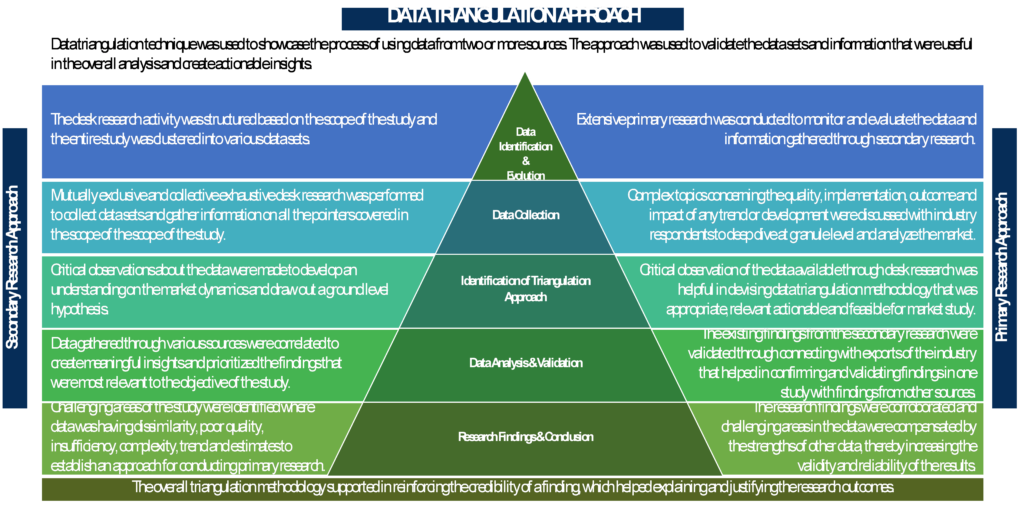Electric Commercial Vehicles Market

Global Electric Commercial Vehicles Market by Propulsion type (BEV, HEV, PHEV, FCEV), by Vehicle type (Bus, Truck, Van, Others), by Component (Motor, Battery, Others) – Industry Analysis, Size, Share, Growth, Trends, and Forecast, 2014-2024.
- Published Date: June 2018
- Report ID: BWC1802
- Available Format: PDF
- Page: 132
Report Overview
Global Electric Commercial Vehicles Market: Overview
The Electric Commercial Vehicles market report provides analysis for the period 2014 – 2024, wherein the period from 2018 to 2024 is the forecast period and 2017 as base year. The report covers all the major trends and technologies playing an influential role in the market’s growth over the estimated period. It also highlights the drivers, restraints, and opportunities for the analysis of market growth during the period. The market study reveals that the Global Electric Commercial Vehicles market is expected to grow at a CAGR over 13.0% during the forecast period in terms of value. The market is expected to reach over USD 149,316 Million by 2024.
The market overview section of the report demonstrates market dynamics such as trends, drivers, restraints, and opportunities that talks about the current nature and future scenario of the said market, key market indicators, end-user adoption analysis. Further, key market indicators included in the report provide the significant factors which are capable to define the market position of global electric commercial product.
Global Electric Commercial Vehicles Market: Scope of the Report
The electric commercial vehicle market can be segmented on the basis of propulsion type, vehicle type, component, and region. Based on propulsion type, the global electric commercial vehicle market is further classified into battery electric vehicle (BEV), hybrid electric vehicle (HEV), Plug-in hybrid electric vehicles (PHEV) and fuel cell electric vehicle (FCEV). The battery electric vehicle segment dominates the market due to government initiatives to promote green transportation across the globe. Based on electric vehicle type, the global electric commercial vehicle market can be fragmented into bus, truck, vans and others. Based on components, the electric commercial vehicle market can be segmented into motors, electric batteries, and others. On the basis of region, the electric commercial vehicle market can be segmented into North America, Europe, Asia Pacific, Middle East & Africa, and Latin America.
The report also highlights the competitive landscape of the global electric commercial vehicles market, positioning all the major players according to their presence in different regions and recent key developments initiated by them in the industry.
This report provides all the essential information required to understand the key developments in the electric commercial vehicles market, growth trends of each segment and region. It also includes strategies of companies, financial information, SWOT analysis, and developments under the company profile section. Also, the report provides insights related to trends and their impact on the market.
Global Electric Commercial Vehicles Market: Key Findings of the Report
According to BlueWeave Consulting, the key findings of the report “Global Electric Commercial Vehicles Market Size, Share, Development, Growth and Demand Forecast to 2024” are:
· Global electrical commercial vehicle market is expected to witness significant growth over the next ten years due to population expansion coupled with growing industrial sector in developing economies of Asia Pacific and Latin America. Rising transportation infrastructural spending owing to strong economic growth is anticipated to remain a key driving factor for industry growth over the forecast period
· Increasing incorporation of telematics & communication capabilities in electrical commercial vehicles is anticipated to boost market growth. Growing food & beverage industry is another key factor driving industry growth over forthcoming years owing to increasing food trucks and refrigerated vehicles demand
Global Electric Commercial Vehicle Market, Revenue Forecast, USD (Million), 2014-2024
Global Electric Commercial Vehicles Market: Market Dynamics
The demand for the commercial electric vehicles is governed by increase in demand for fuel-efficient, high-performance and low-emission vehicles. Moreover, it is also been influenced by the trend of reduction in vehicular emission due to stringent rules & regulations in several countries and growth of public charging infrastructure in China, France, Norway, and the other developed countries. However, technological advancements in electric vehicles and proactive government initiatives are expected to unfold various opportunities for the growth of the stakeholders of the said market, such as system integrators, vehicle manufacturers, engine manufactures, and component providers. Though electric vehicles have proven to be advantageous over conventional vehicles, the market is not without restraints hindering the growth of the market over the forecast period. Electric vehicles come along with a high price tag which might evoke customer apathy towards this market. Scarcity of charging points within major cities is a massive hurdle in the growth of the global electric vehicles market.
Global Electric Commercial Vehicles Market: Research Methodology
Extensive secondary research was conducted using paid data sources including Bloomberg, Factiva, Capital IQ, OneSource, and Hoovers. Additionally, several publicly-available data sources were used including journals, statistics articles, and industry associations. These data sources were used to gather relevant information to develop an understanding on the global electrical commercial vehicles market. The research was conducted covering the desk research and primary research. Data sources used for primary research included online forums and blogs, CATI/CAWI, CAPI interviews, and video conferences. Additionally, interviews were conducted through connecting with various industry respondents including C-level executives, directors, divisional heads, regional heads, expert consultants, and independent consultants. The primary research was conducted to gain market insights from industry respondents and validate the gathered information through desk research.
Global Electric Commercial Vehicles Market: Competitive Dynamics
The research study includes profiles of leading companies operating in the global electric commercial vehicles market. Some of the key players profiled in the report include Daimler, Tesla, BYD, NISSAN, Proterra, Toyota, BYD Company Limited, ZHONGTONGBUS Ltd, ABB group etc.
1. Preface
1.1 Market Definition and Scope
1.2 Market Segmentation
1.3 Key Research Objectives
2. Research Methodology
3. Executive Summary
3.1 Market Overview
3.2 Market Outlook
3.3 Market Absolute $ Opportunity (US$ Mn)
3.4 Key Players
4. Market Introduction & Market Dynamics
4.1 Introduction
4.2 Market Dynamics
4.3 Drivers
4.4 Restraints
4.5 Value Chain Analysis
4.6 Taxonomy
4.7 Research Methodology
5. Electric Commercial Vehicle Market Development
5.1 China electric commercial vehicle Sales — 2011–2017
5.2 Growth in Number of electric commercial vehicles Sales in China in 2017
6. Global Electric Commercial Vehicle Market
6.1 Key Trends
6.2 Market Value in US$ Mn and Volume in Units Analysis, 2014-2024
6.3 Global Market Size, By Propulsion
6.4 Global Market Volume, By Propulsion
6.5 Global Market Size, By Vehicle Type
6.6 Global Market Volume, By Vehicle Type
6.7 Global Market Size, By Component
6.8 Global Market Volume, By Component
6.9 Global Market Size, By Country
6.10 Global Market Volume, By Country
7. North America Electric Commercial Vehicle Market
7.1 North America Electric Commercial Vehicle Market Value in US$ Mn and Volume in Units Analysis, 2014-2024
7.2 North America Electric Commercial Vehicle Market Y-o-Y Analysis, 2014-2024
7.3 USA and Canada Electric Commercial Vehicle Market Y-o-Y Analysis, 2014-2024
7.4 North America Electric Commercial Vehicle Market Size, By Propulsion
7.5 North America Electric Commercial Vehicle Market Volume, By Propulsion
7.6 North America Electric Commercial Vehicle Market Size, By Vehicle Type
7.7 North America Electric Commercial Vehicle Market Volume, By Vehicle Type
7.8 North America Electric Commercial Vehicle Market Size, By Component
7.9 North America Electric Commercial Vehicle Market Volume, By Component
7.10 North America Electric Commercial Vehicle Market Size, By Country
7.11 North America Electric Commercial Vehicle Market Volume, By Country
8. Europe Electric Commercial Vehicle Market
8.1. Europe Electric Commercial Vehicle Market Driver Europe Electric Commercial Vehicle Market Value in US$ Mn and Volume in Units Analysis, 2014-2024
8.2 Europe Electric Commercial Vehicle Market Size, By Propulsion
8.3 Europe Electric Commercial Vehicle Market Volume, By Propulsion
8.4 Europe Electric Commercial Vehicle Market Size, By Vehicle Type
8.5 Europe Electric Commercial Vehicle Market Volume, By Vehicle Type
8.6 Europe Electric Commercial Vehicle Market Size, By Component
8.7 Europe Electric Commercial Vehicle Market Volume, By Component
8.8 Europe Electric Commercial Vehicle Market Size, By Country
8.9 Europe Electric Commercial Vehicle Market Volume, By Country
9. Asia Pacific America Electric Commercial Vehicle Market
9.1 Asia Pacific Electric Commercial Vehicle Market Driver
9.2 Indian Electric Commercial Vehicle Market Driver
9.3 Asia Pacific Electric Commercial Vehicle Market Value in US$ Mn and Volume in Units Analysis, 2014-2024
9.4 Asia Pacific Electric Commercial Vehicle Market Size, By Propulsion
9.5 Asia Pacific Electric Commercial Vehicle Market Volume, By Propulsion
9.6 Asia Pacific Electric Commercial Vehicle Market Size, By Vehicle Type
9.7 Asia Pacific Electric Commercial Vehicle Market Volume, By Component
9.8 Asia Pacific Electric Commercial Vehicle Market Size, By Country
9.9 Asia Pacific Electric Commercial Vehicle Market Volume, By Country
9.10 Asia Pacific America Electric Commercial Vehicle Market Size, By Country
9.11 Asia Pacific America Electric Commercial Vehicle Market Volume, By Country
10. Middle East & Africa Electric Commercial Vehicle Market
10.1 Middle East & Africa Electric Commercial Vehicle Market Outlook
10.2 Middle East & Africa Electric Commercial Vehicle Market Value in US$ Mn and Volume in Units Analysis, 2014-2024
10.3 Middle East & Africa Electric Commercial Vehicle Market Size, By Propulsion
10.4 Middle East & Africa Electric Commercial Vehicle Market Volume, By Propulsion
10.5 Middle East & Africa Electric Commercial Vehicle Market Size, By Vehicle Type
10.6 Middle East & Africa Electric Commercial Vehicle Market Volume, By Vehicle Type
10.7 Middle East & Africa Electric Commercial Vehicle Market Size, By Component
10.8 Middle East & Africa Electric Commercial Vehicle Market Volume, By Component
10.9 Middle East & Africa Electric Commercial Vehicle Market Size, By Country
10.10 Middle East & Africa Electric Commercial Vehicle Market Volume, By Country
11. Latin America Electric Commercial Vehicle Market
11.1 Latin America Electric Commercial Vehicle Market Outlook
11.2 Latin America Electric Commercial Vehicle Market Value in US$ Mn and Volume in Units Analysis, 2014-2024
11.3 Latin America Electric Commercial Vehicle Market Size, By Propulsion
11.4 Latin America Electric Commercial Vehicle Market Volume, By Propulsion
11.5 Latin America Electric Commercial Vehicle Market Size, By Vehicle Type
11.6 Latin America Electric Commercial Vehicle Market Volume, By Vehicle Type
11.7 Latin America Electric Commercial Vehicle Market Size, By Component
11.8 Latin America Electric Commercial Vehicle Market Volume, By Component
11.9 Latin America Electric Commercial Vehicle Market Size, By Country
11.10 Latin America Electric Commercial Vehicle Market Volume, By Country
12. Company Profile Analysis
12.1 BMW Group
12.2 Daimler A
12.3 BYD Co Ltd
12.4 Tesla, Inc
12.5 Toyota Motor Corporation
12.6 ABB Group
12.7 Nissan Motor Co., Ltd
12.8 Mitsubishi Electric Corporation
13. Assumptions & Acronyms Used
Market Segmentation
1. Research Methodology

2. Regional Split of Primary & Secondary Research

3. Secondary Research
The research process began with obtaining historical market sizes of the entire electric vehicle market and the share of each type of segmentation, through exhaustive secondary research to understand the potential of the market under the prevailing market environment during the past years. The growth rate of the market and its segments was studied with a comparative approach to understand the impact of factors that shaped the market during the recent past.
The next step involved the study of present market environment that is influencing the electric vehicle market and its expected long-term impact. Weightage was given to several forces that are expected to affect the home security market, during the forecast period. Based on the interim analysis, the market numbers were formulated for each of the forecast years for every segment.
4. Primary Research
Various industry experts including CEOs, presidents, vice presidents, directors, sales managers, products managers, organization executives and other key people of the global electric vehicle market were interviewed. The third step involved validation of hypothesis through segmented primary research with the key opinion leaders in the industry, including the company representatives, experts from distributer agencies, service providers and other industry experts. The primary research helped in assessing the gathered and assumed data with the real-time experience of industry representatives. This also led to modification in certain assumptions that were taken during the process of preliminary research. The analysts arrived at solid data points after the completion of primary research process.
In the fourth step, the market engineering was conducted, where the data points collected through secondary and primary sources were compiled to compute the final market sizes.
4.1 Breakdown of Primary Research Respondents, By Region

4.2 Breakdown of Primary Research Respondents, By Industry Participants

5 Market Size Estimation
Top-down approach has been followed to obtain the market size by region, and by country. Bottom-Up approach has been followed to obtain market size by propulsion, by vehicle type, and by component.
An amalgamation of bottom-up and top-down approach has been performed to determine the revenue.
6 Assumptions for the Study
- The macroeconomic factors would remain the same during the forecast period.
- The market players would exhibit consistent performance during the forecast period without having any adverse ripple effects on the industry.
7. Market Breakdown & Data Triangulation

To request a free sample copy of this report, please complete the form below.
We value your investment and offer free customization with every report to fulfil your exact research needs.
RELATED REPORTS
WHY CHOOSE US
-

24/7 Research Support
Get your queries resolved from an industry expert. Request for a free product review before report purchase.
-

Custom Research Service
Ask the Analyst to customize an exclusive study to serve your research needs
-

Quality & Accuracy
Ask the Analyst to customize an exclusive study to serve your research needs
-

Data Visualization
As the business world is changing dynamically every day. We need to stay pin point in relation to data management and optimum data utilization
-

Information security
We never share your personal and confidential information. Your personal information is safe and secure with us.


